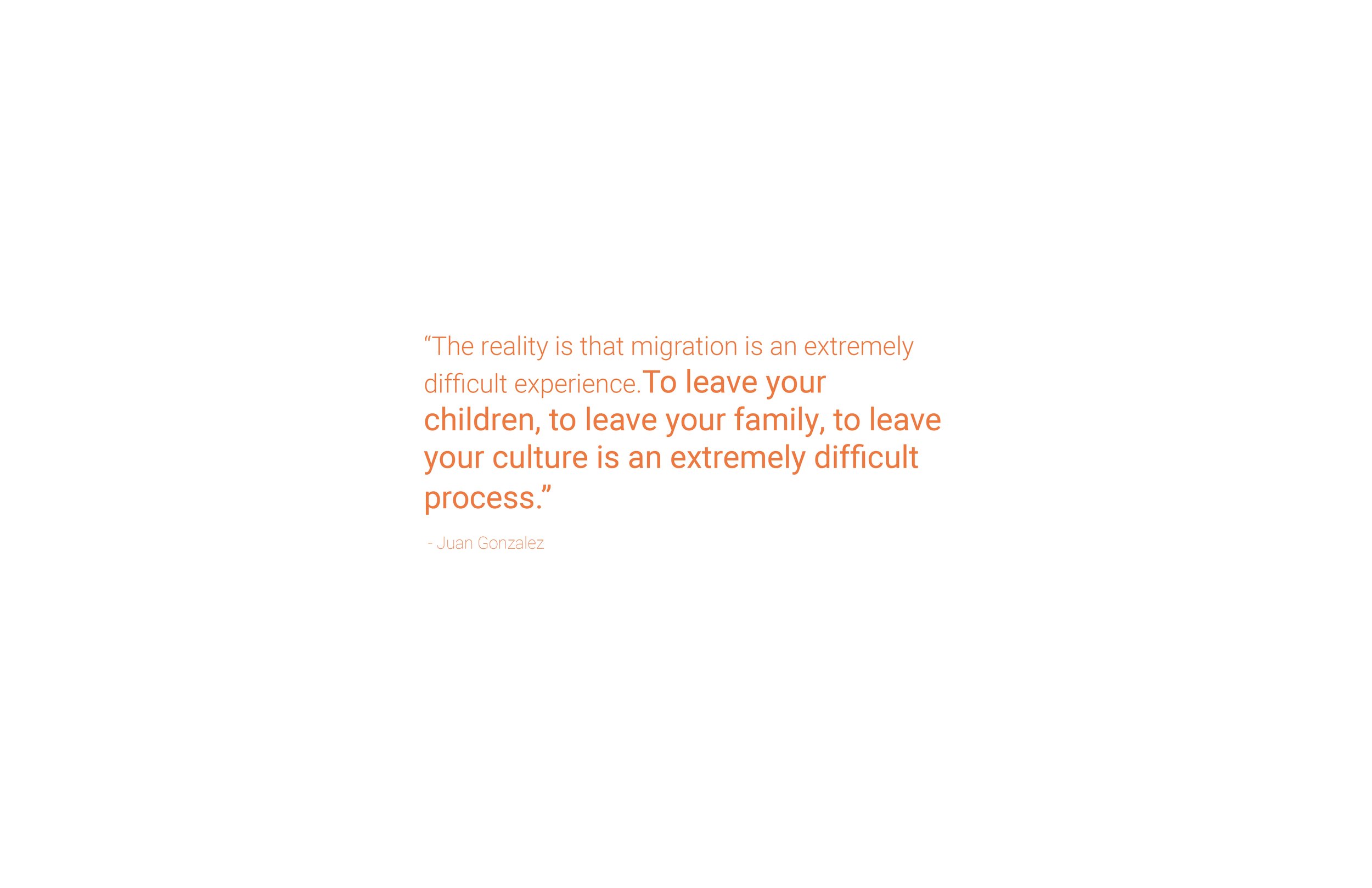Migration + Moments + Memories is the culmination/product of my BFA Senior Thesis. Below is the transcript from the presentation day.
“Hello everyone my name is Kathy Espinoza Perez and my thesis is called Migration, moments, memory. I wanted to begin my presentation with a quote from the Mexican journalist Jorge Ramos. “It is, I know… an impossible search. Memories are tied not only to a physical place but also to specific moments. That is why we can’t return home, at least not to the House that all immigrants left behind and now exists only in our minds and our memories.” This journey is an exploration of the realities of the immigrant experience in search of “el sueno americano” or the american dream. As the daughter of Mexican immigrants I have chosen to interpret these spaces of uncertainty that lie within the emotional journey through landscape and space. In reality my thesis began long before the second semester of senior year even long before my time at MICA. In reality it began when I began to understand the realities of what life was like when your family is “illegal.” It began when my family had a deportation plan instead of a fire safety plan like the rest of the kids in my class, it began when whispers of “La Migra” coming in to town sent shivers down my back, it began when our “vacation road trips” were actually spent in a dmv in another state because word had spread that you didn’t need paper to get a license in that state. It was then that I understood what it really meant to be a Latino immigrant in this country. My thesis is an emotional reflection of the realities of my family's journey from Mexico to the United states. Through my thesis I have explored various feelings and realities encountered along the migrant journey.
One of my first memories as a kid was sitting in my father's old truck. Mexican music blasted from the stereo. The lyrics went “de que me sirve el dinero, si estoy como prisionero en esta gran nación… aunque la jaula sea de oro no deja de ser prison. In english it translates to “What good is money to me if I am here a prisoner of this grand nation, even though the cage is made of gold, it still remains a prison.” For the majority of migrants, the united states is seen as a the land of wealth and opportunities. A place where your life worries will cease to exist. The reality is far from that. The reality is that life for immigrants is a grim uphill battle . Crossing over the border alive is only half the battle, Dozens of barriers stand between immigrant families and their dream of the golden country of abundance on the other side of the wall. They take low paying jobs, work long hours and live in fear of being deported, The reality is that you’re a stranger in a country that doesn’t welcome the people who look like us with open arms This golden cage becomes a cage of comfort but also a cage of nothingness.
Like la jaula de oro Labyrinth describes the feeling of frustration and discouragement that come with the realities of navigating life and the bureaucracy within the United states. For my parents and like many others. Coming here was only something temporary. 1 year or 2 at the most. Then back home. Those 2 years quickly turn into 10 then 15 and eventually 20. An entire lifetime passes, but the temporary stay has no end in sight. With each passing day The idea of going home seems to become more and more distant. They always say that time passes flying right before your eyes when you’re in America. Day in and day out life in America becomes a bleak comparison to what it was in Mexico. Sure, there's a little bit more money in the bank but at what costs? For years I watched what the effects immigration had on my parents and their siblings. Emotionally I watched their time here age them, life in America had taken from them some of life's biggest moments. I watched my uncle experience everyone of his children’s life moments through a facetime camera. That same uncle has been here for so long that his hope to return back to the family he left behind 16 years ago is no longer a reality. 16 years of phone calls have turned him into a voice that his family hears every night after dinner. His children have no memory of a time spent with their father. His time here has stripped them of their precious relationships with those back home. The wall separated them but time tore them apart.
A hope of return refers to the hope that every immigrant carries with them. The hope of one day being able to return to their home, it is was motivates and keeps migrant workers going each day. The idea that each day you’re one day closer to returning home. The same hope I watched my parents keep with them. This hope poured through them as stories of how life would be for us back in Mexico. These stories were always beautiful stories about a beautiful land my parents had left behind. Stories about a place full of life, love and rich culture. Most importantly surrounded by who looked like us. In this place we would not have to be strangers. In this place although money would be tighter than it was here, we would be home. As a kid I began to think that my parents had gotten it all wrong. I began to think that the real golden country had been Mexico all along. I have chosen to end my presentation in the same way that it began, with a quote from the author Junot Diaz, “ I think if every immigrant child in this country was allowed to tell the real emotional truth of their experience here, people in the US would actually discover that we actually make immigration a more horrific experience than it needs to be.”
THANK YOU






































